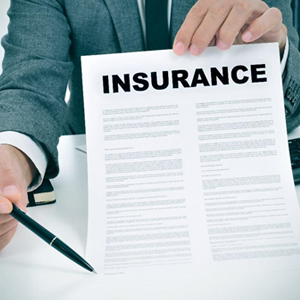Personal injury rental car coverage is a type of insurance that provides protection for drivers and passengers in a rented vehicle in the event of an accident. This coverage can include medical expenses, lost wages, and other damages resulting from injuries sustained in the accident.
Understanding personal injury rental car coverage is particularly important for drivers in Georgia, as state laws and insurance requirements can vary. Being well-informed about the extent of your coverage can help ensure that you are adequately protected and prepared in case of an accident involving a rental car.
Accidents involving rental cars can be more complex than those involving privately-owned vehicles. With the involvement of rental car companies, additional insurance policies, and potential third-party liabilities, it is critical for drivers in Georgia to understand their personal injury rental car coverage and how it relates to such accidents. This knowledge can help protect your interests and assist in navigating the aftermath of an accident involving a rented vehicle.
When renting a car in Georgia, it’s essential to understand the state’s insurance requirements to ensure you’re adequately covered during your travels. In this section, we’ll break down Georgia’s minimum insurance coverage requirements, as well as optional insurance coverage that you may consider for added protection.
In Georgia, all drivers, including rental car drivers, must carry a certain level of insurance coverage to operate a vehicle legally. These requirements are in place to protect both you and other drivers on the road. The minimum insurance coverage requirements in Georgia include:
In addition to the minimum insurance requirements, there are several optional coverage options available to rental car drivers in Georgia. While not legally required, these additional coverages can provide extra peace of mind and financial protection in case of an accident or unforeseen circumstances.
In conclusion, when renting a car in Georgia, it’s crucial to understand the state’s minimum insurance requirements and consider optional coverages for added protection. By familiarizing yourself with these insurance options, you can make informed decisions and ensure a worry-free driving experience during your rental period.
Experiencing an accident in a rental car can be a stressful and overwhelming experience. However, knowing the steps to take after a personal injury accident involving a rental car can help protect your rights, ensure your safety, and minimize any potential complications. Follow these crucial steps to navigate the aftermath of an accident:
 A. Gather information at the scene
A. Gather information at the sceneThe moments following an accident are crucial, and gathering information at the scene can be immensely helpful when filing insurance claims and dealing with any legal matters. Here’s what you should do:
As soon as possible, contact the rental car company to inform them about the accident. They will provide you with instructions on how to proceed, which may include filing an incident report and arranging for a replacement vehicle if necessary. Be sure to follow their guidelines and keep a record of all communication with the company.
If you’ve been involved in an accident or suffered an injury due to someone else’s negligence, you may be considering hiring a personal injury attorney. But when is the right time to do so? Here are some key factors to consider when making this important decision.
Not all personal injury cases require the assistance of an attorney. For minor injuries with clear liability and straightforward insurance claims, you may be able to handle the process independently. However, if your case involves severe injuries, long-term medical treatment, or complex legal issues, it’s wise to consult with a personal injury attorney. They have the experience and knowledge to navigate these complexities and advocate for your best interests.
In some cases, determining who is at fault for an accident can be a challenging process. Multiple parties may be involved, and liability may not be immediately clear. A personal injury attorney can help you investigate the circumstances surrounding your accident, gather evidence, and establish the responsible parties. Additionally, they can assist in determining available insurance coverage and identifying any potential sources of compensation.
One of the most crucial aspects of a personal injury claim is ensuring you receive fair compensation for your injuries and damages. Insurance companies often try to minimize payouts and may offer you a settlement that doesn’t fully cover your losses. A personal injury attorney can evaluate your case, calculate the true extent of your damages, and negotiate with insurance companies on your behalf. They’ll also be prepared to take your case to court if necessary to secure the compensation you deserve.
In conclusion, consulting with a personal injury attorney can be an essential step in protecting your rights and recovering the compensation you’re entitled to after an accident. By evaluating the complexity of your case, determining liability and insurance coverage, and ensuring fair compensation, an experienced attorney can help guide you through this challenging time and maximize your chances of a successful outcome.
Navigating the complexities of personal injury and rental car coverage in Georgia can be a daunting task. It’s vital to understand your rights and responsibilities when involved in a rental car accident, as well as the insurance coverage options available to you. A thorough comprehension of these issues is key to protecting yourself and securing the compensation you deserve.
If you’ve been involved in a rental car accident in Georgia, don’t hesitate to seek the guidance of experienced personal injury attorneys, like Scott S. Cohen and Thomas C. Sinowski, II of Cohen & Sinowski. Their expertise in personal injury law can help you navigate the complexities of your case, ensuring you receive fair compensation for your damages and injuries.
Sinowski. Their expertise in personal injury law can help you navigate the complexities of your case, ensuring you receive fair compensation for your damages and injuries.
Contact Cohen & Sinowski today for a free consultation. With their no-fee-unless-we-win policy, you can trust that their team is committed to fighting for your best interests. Visit their website at www.cohensinowski.com, call them at 404-351-8888, or email Thomas at Thomas@candspc.com to schedule your consultation. Remember, #localmatters, so choose a law firm with deep roots in the Marietta, GA community.
Don’t wait – take action now and secure the support you need for your rental car accident case by visiting http://www.cohensinowski.com/contact-us.